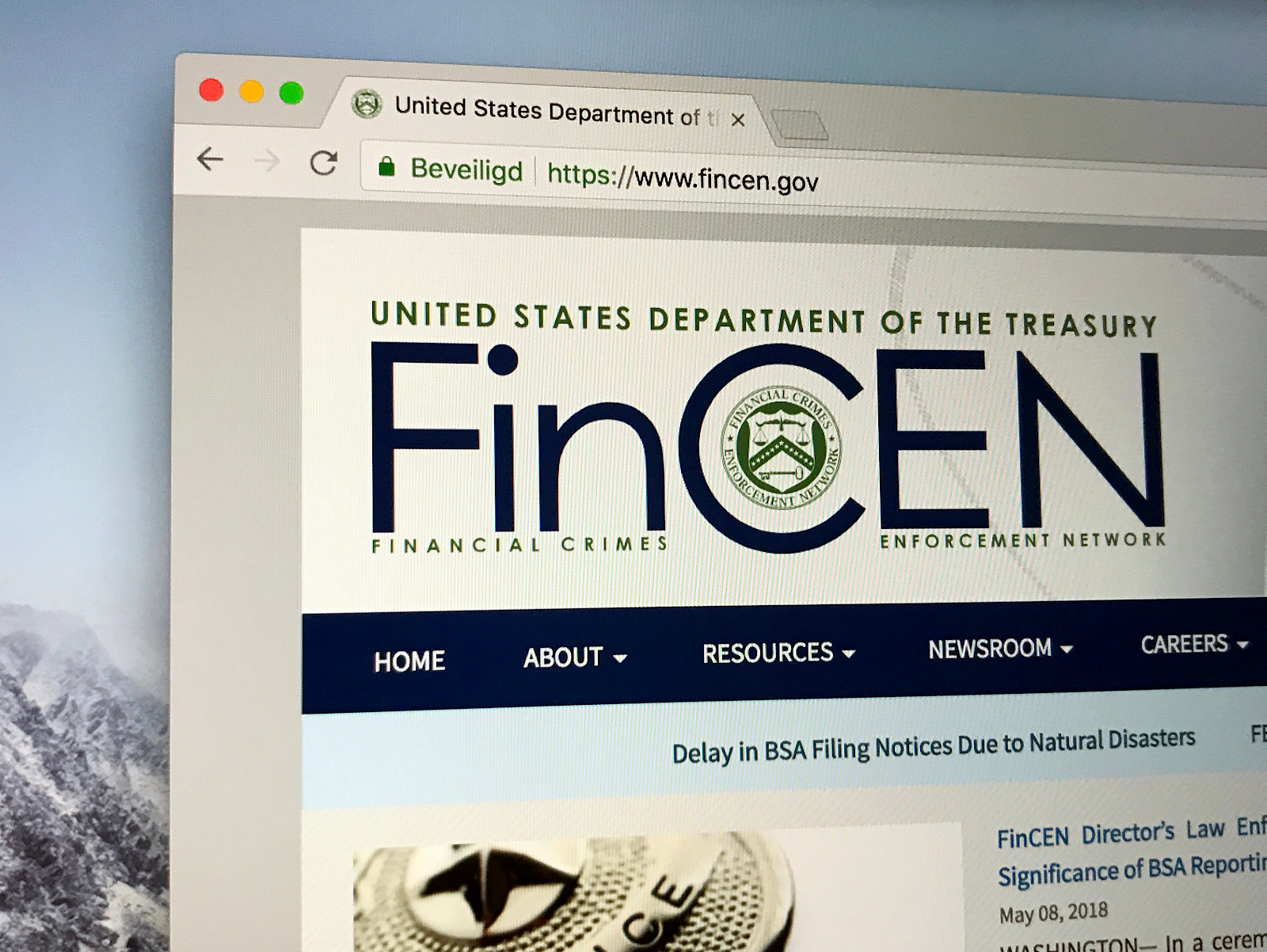The Global Trend Towards Corporate Tax Transparency Accelerates
Here’s the State of Play:
Tax Loopholes and Tax Transparency
The Global Trend towards Transparency Accelerates
|

|
These past few weeks have seen “explosive” momentum in the movement for tax transparency. The United Nations High-Level Panel on International Financial Accountability, Transparency and Integrity for Achieving the 2030 Agenda (FACTI Panel) published their report in late February, recommending a broad slate of much-needed global reforms including public country-by-country reporting (PCbCR) of taxes and other financial information by multinational companies.
|
|
This year, the Global Reporting Initiative put into effect the first global voluntary standard on public country-by-country tax reporting. The standard, known as GRI 207, has already attracted early support from Philips, Orsted, Alliance, and Newmont.
|
|
Governments are taking notice as well. After five years of deadlock, a breakthrough at the European Council brings a country-by-country reporting deal within reach. As PCbCR negotiations at the EU move towards a “trialogue” negotiation between the Council, Commission, and Parliament, there’s growing hope on the other side of the Atlantic as well.
|

|
|
At a recent House Financial Services Committee hearing, tax disclosures were discussed as an essential ESG reform to accompany other measures, including corporate climate risk disclosures. A representative of CalPERS, the largest public pension fund in the US, strongly backed PCbCR as an important tool for investors. This hearing also highlighted draft legislation, the Disclosure of Tax Havens and Offshoring Act, from Rep. Cindy Axne (D-IA), which would require these disclosures. Sen. Chris Van Hollen (D-MD) has led the companion legislation in the Senate.
Investors' calls for tax transparency are growing louder. At the Council of Institutional Investor's 2021 Spring Conference, a panel on PCbCR reiterated that tax disclosures must be seen as financially material – and therefore crucial for investor decision making. Meanwhile, an investor writing in International Banker has made clear that “compliance is not a fad,” and that it’s time for corporations to make a firm investment in transparency.
|
New Focus on Revenue-Draining Tax Loopholes
|
Alongside its call for country-by-country reporting, the UN FACTI report also made clear that it was time for a global response against pervasive tax abuse. The report specifically recommended that a global minimum tax, somewhere between 20 percent and 30 percent be levied on corporate profits to crack down on profit-shifting behavior. Corporate Income Taxes Under Pressure, a new book from the IMF points out the flaws in the current international tax infrastructure and looks at potential solutions. The World Bank’s Director for Macroeconomics, Trade, and Investment, made his own appeal in International Banker for a “more just international tax system.”
|
|
Amidst these calls for change, lawmakers in the US Congress have put forward new legislation that could jumpstart the global effort to combat corporate tax avoidance. Spearheaded by Sen. Sheldon Whitehouse (D-RI) and Rep. Lloyd Doggett, the No Tax Breaks for Outsourcing Act of 2021 would equalize US corporate tax rates and reduce incentives for profit-shifting. The bill already has more than 100 sponsors in the House, 6 sponsors in the Senate, and has garnered the support of 90 NGOs who signed onto a coalition letter of endorsement. The legislation has amazing potential to restore state revenues, secure US jobs, level the playing field for small businesses, and serve as an important model in global tax negotiations.
|

|
Ending Anonymous Shell Companies
Implementing the Corporate Transparency Act
|

|
As President Biden’s appointees are increasingly confirmed, it is now time for Treasury Department action on implementing beneficial ownership transparency – disclosing real person(s) who controls and economically benefits from a company. FACT fought hard to see the Corporate Transparency Act passed into law at the beginning of January and looks forward to quick action on the law.
|
|
The project falls to the Financial Crimes Enforcement Network (FinCEN), a part of the Treasury that has been critically underfunded given its outsized role in fighting financial crime. Its own officials have stated that it’s time for the agency to staff up if it hopes to meet the coming task of standing up a beneficial ownership database. While FACT believes that FinCEN can – and must – get the regulations and directory up and running before the legislatively mandated January 2022 deadline, these concerns highlight the need for Congress to give FinCEN the funding it needs to enact the CTA. Recognizing the critical role that FinCEN plays in fighting financial crime, FACT member Global Financial Integrity recently published a report on how to both strengthen the agency before CTA implementation and reimagine FinCEN as the anti-money laundering (AML) thought leader in the executive branch.
Beyond the Corporate Transparency Act, another beneficial ownership directory approved by Congress is in the works. Section 885, a lesser known provision of the 2020 defense spending bill which contained the landmark Corporate Transparency Act (CTA), will require companies applying for federal contracts to submit their beneficial ownership information to a public database. Proper implementation of this legislation, in addition to the CTA, will be an important concrete demonstration of the Biden Administration’s commitment to a global anti-corruption agenda.
|
Secrecy and Corruption under Continued Global Scrutiny
|
Meanwhile, around the world, concerns abound around corruption and the COVID-19 recovery. Transparency International in January provided links between perceived corruption and pandemic recovery in its Corruptions Perceptions Index report, and its findings were reinforced at the United Nations. Especially as G7 countries discuss the global pandemic recovery, steps must be taken to prevent vaccines and financial aid from going to waste.
|

|
|
Beyond COVID, the global movement for beneficial ownership and against corruption moves forward. Recent exposés such as #OpenLux, which evidenced Luxembourg’s continued role as a tax haven and financial secrecy jurisdiction, remind us why the “era of financial secrecy” needs to end. Cyprus – in an effort to dispel its reputation for lax financial regulation – has announced its plans to launch its own beneficial ownership registry in the coming months. Not all countries are moving ahead at the same pace: in February, the Cayman Islands earned an unenviable listing on the Financial Action Task Force’s Terror-Financing Watch List. This was also reflected in the Tax Justice Network’s 2021 Corporate Tax Haven Index, launched this month, in which British Crown Dependencies such as the British Virgin Islands, Bermuda, and, of course, the Cayman Islands, continued to dominate the rankings. There is nevertheless hope for progress: Change might be coming to the UK’s “spider web” of financial secrecy, as the country aims to promote greater transparency throughout its dependencies by the end of 2023. The UK has an important leadership opportunity to advance this agenda and its “open societies” priorities during its G7 presidency this year.
In other anti-corruption news, the Biden administration reimposed sanctions on Dan Gertler, a mining kleptocrat responsible for extracting $1.3 billion dollars from the Democratic Republic of the Congo. This is a win not only for the FACT Coalition but for dozens of other NGOs who joined with us to sign the Sentry’s letter urging the administration to action.
|
In the Press
From FACT
Quoted in
Recent and Upcoming Events
|

|
Senate Budget Hearing: Ending a Rigged Tax Code: The Need To Make the Wealthiest People and Largest Corporations Pay their Fair Share of Taxes
March 25: The Senate Budget committee will hold a hearing with witnesses Abigail Disney, CEO of Fork Films; Gabriel Zucman, Professor of Economics at UC Berkeley; Amy Hanauer, Executive Director of ITEP; Maya MacGuineas, President of Committee for a Responsible Federal Budget; and Scott Hodge, President of the Tax Foundation.
|
|

|
Senate Finance Hearing: How U.S. International Tax Policy Impacts American Workers, Jobs, and Investment
March 25: The Senate Finance committee will hold a hearing with witnesses Kimberly Clausing, Ph.D., Deputy Assistant Secretary (Tax Analysis); Pam Olson, Former Assistant Secretary For Tax Policy; Chye-Ching Huang, Executive Director of The Tax Law Center; James R. Hines Jr., Ph.D., Richard A. Musgrave Collegiate Professor Of Economics; and L. Hart Wright Collegiate Professor Of Law at University of Michigan Ann Arbor.
|
|

|
2021 OECD Global Anti-Corruption & Integrity Forum
March 23 - 25: The virtual 2021 OECD Global Anti-Corruption & Integrity Forum will take place on 23-25 March 2021. Register today to join discussions on new public integrity indicators, illicit financial flows, state involvement in the business sector, and many other issues.
|
|

|
World Bank and IMF Civil Society Policy Forum
March 22 - April 11: The Civil Society Policy Forum (CSPF) has become an integral part of the International Monetary Fund and World Bank Group Spring and Annual Meetings, providing an open space for Civil Society Organizations (CSOs) to dialogue and exchange views with World Bank Group and IMF staff, their peers, government delegations, and other stakeholders on a wide range of topics.
|
|

|
(RECENT) Women in Housing and Finance Webinar
March 16: Women in Housing and Finance hosted on a webinar on the Anti-Money Laundering Act of 2020, which has brought the most profound changes to the U.S. AML/CFT regime since the passage of the USA PATRIOT Act in 2001.
|
|

|
(RECENT) Global Alliance for Tax Justice: “Make Taxes Work for Women”
March 15: Ian Gary joined the Global Alliance for Tax Justice and its regional networks to discuss the impacts of our tax systems on women around the world and what the global tax justice movement has been advocating for to make taxes work for women. Video of the event is included by clicking on the event title.
|
|

|
(RECENT) Chatham House: Illicit Financial Flows 2021
March 1-2: The 2021 Illicit Financial Flows LIVE conference will explore the ‘real-world’ impact of illicit finance, the situation surrounding the regulation and enforcement of financial crime and address the barriers that are in place which impede public-private partnerships from effectively collaborating. FACT Executive Director Ian Gary joined as a speaker.
|
Social Media Shoutouts
@ChrisVanHollen, The GOP Tax Scam gave tax breaks to billionaires at the expense of American families. It also created incentives for corporations to ship U.S. jobs and profits overseas. We must end these policies and invest here. Our bill, the No Tax Breaks for Outsourcing Act, does just that.
@SenWhitehouse, Hard-working American families don’t get offshore tax shelters to avoid paying taxes. Big corporations and the ultra-rich shouldn’t get them either. #StopTaxHavenAbuse
@RepLloydDoggett, The No Tax Breaks for Outsourcing Act could recover hundreds of billions of dollars in corporate taxes rightly owed on those profits, which could be invested to promote even more economic growth here in the USA.
@SenatorCardin, Very pleased to see this important report from @transparencyUSA and the close work with @HelsinkiComm. My Combating Global Corruption Act and CROOK Act will help achieve our common vision of the US as a leader in the fight against corruption & kleptocracy.
@SenBooker, Mr. Gertler amassed millions of dollars from corrupt mining & oil deals in the Democratic Republic of Congo. I applaud @JanetYellen for reimposing sanctions sending a clear message to those who facilitate corruption & undermine the rule of law.
@RepMaloney, My Corporate Transparency bill, which became law last year, is the most significant anti-corruption legislation we’ve passed in decades. Now, the fight continues to ensure that the enforcers of these rules have all the resources they need.
About the FACT Coalition
The Financial Accountability and Corporate Transparency (FACT) Coalition is a non-partisan coalition of more than 100 state, national, and international organizations working toward a fair and honest tax system that addresses the challenges of a global economy and promotes policies to combat the harmful impacts of corrupt financial practices.
Click here to unsubscribe
